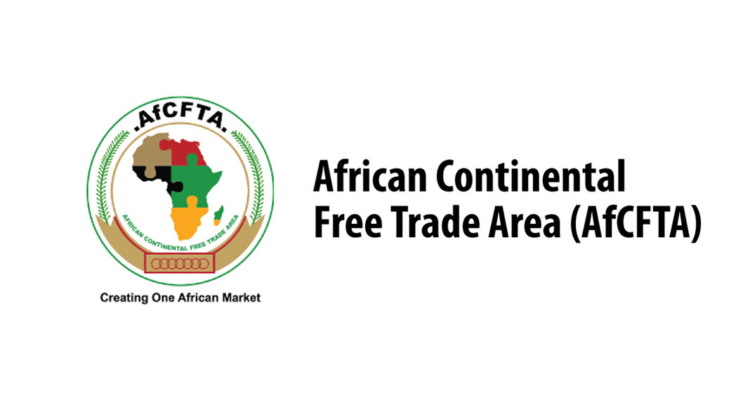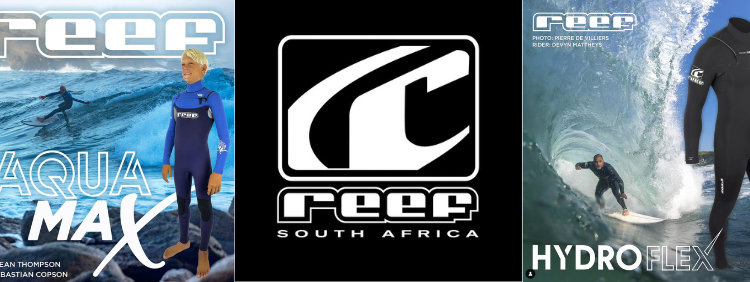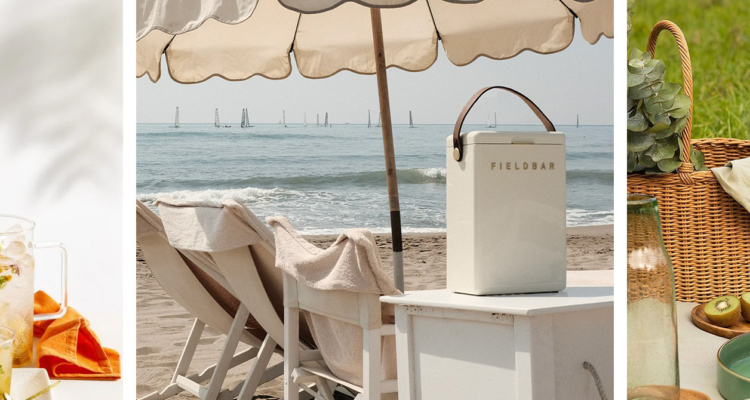How to complete the AFCFTA certificate
How to complete the AFCFTA certificate If any details are incorrect or do not comply with the attachment, if the words were erased or overwritten, or had been changed, it is considered invalid. However, if incorrect details are removed, necessary corrections are added, changes are allowed, and changes are initialized by persons who complete the certificate and are recognized by the signed official. Box 1: Provide the exporter's full legal name, address (including country) and contact information, as well as the exporter's registration number. Box 2: Provide complete legal name, address (including country) and importer contact information. Box 3: Completed by the issuing authority Box 4: Provides detailed transportation information for vehicles, trains, ships, aircraft or other vessels used to remove cargo from the last port of the exporting country. Box 5: Tag each package and mark and numbers that identifies the benefits of each export. If the package is not marked, write "No tags and numbers" or "As on…
Customer Success Story: Collagen Coffee House
Collagen Cafe is a South African health brand founded in 2021 and he set out to revolutionize collagen supplementation with convenient, highly absorbable liquid products. Learn about their approach to international expansion strategies, reveal key metrics for their readiness, insightful tips for market research, and a resilient mentality that enables them to overcome their initial fears and encounter unexpected obstacles. 1. Can you share some background information about collagen cafe? Collagen Cafe is launched in 2021. Our vision is to bring convenient, absorbable and high-quality collagen products to the market. 2. When did you realize that your business is ready for export? What are the main indicators? We realize that after we gained significant traction in the South African market, our business is ready to export and starts to gain interest from foreign distributors through our extensive marketing. Key indicators: consistent growth, overseas customers ask where they can buy, knowing we will be able to compete in price, quality and…
Commercial invoice best practices for international trade
Customer Questions: The buyer asked me to raise two commercial invoices - one for the goods and the other for the goods invoice. Why do they ask, what are the risks of doing this? answer: Inclusion of any content or omitting any content in a commercial invoice, resulting in false statements about customs is a criminal offence. For example, if you do not incur international shipping (commonly called "freight"), you cannot include it in a commercial invoice. Conversely, if you do happen to it, you can't rule it out. However, there is no limit instructing you to submit the goods on the same invoice as the supply of the goods. Therefore, two (or more) documents covering a single power supply can be used. In some models, freight is only reasonably known after the event, so two commercial invoices may appear in the ordinary business process, but if this is not your model you. On the second guessing about their motivation,…
The unique flavor of South Africa’s homemade pizza – import and export
We first came up with the idea of designing a pizza oven suitable for grilling in 2012. We soon realized that making a great pizza requires a lot of heat. On Friday afternoon the first prototype was completed and on Saturday we had our first pizza BBQ party. The idea is great and works. It worked so well that we decided to expand the wedding venue design and make pizzas for up to 90 guests. Despite hosting many successful pizza roasts over the years, we have yet to realize the full potential of pizza roasts. 2020 is here, the city is closed, everyone is at home, and they cook a lot of barbecues. After tearing down the first prototype, we only had the XL version of the pizza grill, which was too big for a regular grill. The craving for pizza grows every day, but so does the need for a pizza grill that's small enough to stay in your…
Practical considerations for exporting to the United States
As a trusted trading partner, African Business Group (ABG) helps businesses trade under AGOA through these 10 steps: 1. Understand the industry and study the market Exporting products to the United States offers exciting opportunities for businesses, but requires careful planning and a deep understanding of industry and market dynamics. It requires you to research the current state of the U.S. industry and identify trends, leading companies, consumer behavior, and any recent changes. You also need to determine who your customers are, their demographics, buying behaviors, and preferences. Understanding your audience helps tailor your products and marketing efforts. Don’t forget to research your competitors. Understand who they are, what they offer, and their unique selling points. This information helps you differentiate your products. 2. Identify appropriate industry clusters/key regional areas of activity When planning to export to the United States, it is recommended to identify key industry clusters in the country that match your product or service. Research areas known…
what you need to know
Customer questions: We are considering importing via DDP - what should we be aware of? answer: The introductory notes to Incoterms 2020 warn against the use of DDP (delivered duty paid) in cross-border trade, implying that it really applies to domestic modes. However, the ICC did not elaborate further. In my experience, it often happens that while international contract negotiations may eventually incorporate the expression DDP, the model of execution is not actually a DDP. Of course, what we “do” is always more important than what we “say” we will do. Misuse of the term often leads to disputes, particularly regarding the allocation of costs between sellers and buyers. In the classic, unmodified import DDP model, the non-importer party on the SAD500 is the buyer. The seller is responsible for managing import customs risks and costs.Technically, the importer of record may not be the seller (although they can apply for an importer code, even as a foreign entity), but rather…
Reef SA Entrepreneur Success Story
south african coral reef is a family-owned business that has been shaping the way South Africans experience water sports for over four decades. From humble beginnings to its current position as a leading brand, Reef has always demonstrated a remarkable ability to adapt and grow. Under the guidance of the Stringer family, the company has cultivated a strong brand image, built lasting relationships with customers and navigated the complex import market with expertise. In this success story, we speak to Grant Stringer about their strategies and challenges with import logistics, and their unwavering commitment to providing exceptional products and services to the South African watersports community. How does Reef build a strong brand presence in South Africa? What strategies have you used to make your product stand out? We focus on our core markets and provide quality products and market-relevant prices. No matter how big or small our clients are, service is the top priority of our business. We believe…
Mia Melange’s Entrepreneurial Success Story
Imagine a brand that seamlessly blends South African heritage with contemporary design, while supporting local communities and prioritizing the environment. That's the essence of Mia Mélange, a proudly South African company that handcrafts home décor and lifestyle products using 100% locally sourced cotton rope. Mia Mélange was founded in 2014 by Mia Danieli and acquired by Jeanneke Malan in 2017. Jeanneke is passionate about creating opportunities and has developed a team of talented craftsmen. They are ethically compensated and equipped with valuable skills, developing independence and the ability to provide for their families. Their products are found in design stores across South Africa and even in specialty stores around the world. From a cabin in Rwanda to a home in Australia, Mia Mélange's handmade pieces add a touch of South African art to spaces around the world. We spoke to Jeanneke Malan about Mia Mélange's journey, her vision for the business and her impressive export success. What inspires Mia Mélange?…
Do I have to fill in my HS (tariff) code on the commercial invoice?
Customer Question: We buy CIF because the seller's insurance is cheaper. Is that it? What else should we consider? answer: In a C-prefix transaction, the seller sells the buyer a document that proves the handover or dispatch of goods. A C prefix contract will never work in favor of the buyer unless the buyer intends to resell the document to another buyer. In reality, the buyer expects the documents to result in the contract goods, but the seller has given no guarantee that this will be the case. With reference to the Incoterms, delivery in a CIF sale means the seller hands over documents to the buyer, some of which will prove that the contract goods have been loaded on board the vessel at the port of shipment. Although the seller's price includes international transportation (freight) from the port of loading to the port of destination, if the documents are correct, delivery will take place at the port of loading.…
What is a merger? – Import and export licenses
When trying to use the various features of electronic tax filing, such as applying for a customs code or trying to obtain an Advance Payment Notification Number (APN), encountering a consolidation error can be a frustrating obstacle. But what exactly is a consolidation error? And how can you deal with it effectively? Let’s delve into the complexities of consolidation errors and explore the steps to resolve them. What is a merge error? According to the South African Revenue Service (SARS), consolidation errors can arise from incorrect or mismatched information in one or more of a taxpayer’s tax categories. Tax categories are products of the South African Revenue Service, such as income tax, PAYE, VAT, UIF, customs duties, etc. Listed below are some common causes of consolidation errors: The registered SARS representative for a particular tax category is missing or the details of the SARS registered representatives for different tax categories do not match. The contact details of the SARS registered…
Understanding FOB Price and UCR Value
Customer Question: When exporting, what is the difference between my "FOB" price and my UCR value? answer: The UCR (Unique Consignment Reference) value is more correctly called a “transactional” value. This is the sales price of the tangible export, including insurance and transportation costs (if applicable), but excluding certain other intangible items such as royalties, design fees, or installation charges in the destination country. The transaction value is indicated in the customs export declaration in box 28 (or field) SAD500. This is the amount the seller expects to receive, or has received for the goods, when dealing with the bank on receipt of payment (balance of payments or balance of payments report), and the resident must quote the exporter's UCR (also taken from field 28) if the goods have been exported, or the UCR the exporter intends to use if the transaction is partly or fully prepaid. However, customs also require a statistical value, informally known as "free on board"…
Restrictions on sales of goods from South Africa FOB or FCA
Customer Question: Why can't I sell FOB or FCA from South Africa? answer: In 2014, the VAT export incentive scheme was replaced by Export Regulation R.316. This regulation is divided into several parts. Part II of the regulations outlines Indirect exporti.e. export by a carrier designated and paid by a qualified purchaser (buyer), while the SA supplier chooses to supply at zero interest, with the risk borne by the supplier. This part is divided into two subsections (A and B), which respectively cover air and sea Indirect export (A) Different from the regulations applicable to roads and railways Indirect export (B). By 2014, Customs had identified all road and rail Indirect export The requirement for a qualifying purchaser to register with the South African Revenue Service as an exporter and to act in that capacity is set out in Part IIB of the VAT Export Regulations. However, Part II.A deals with Indirect export The Sea and Air Freight Exporters Authority…
Export Incoterms and VAT
Customer Question: I am about to export copy paper from Durban to Kenya for the first time using a local shipping company, using the CIF incoterm. I will be purchasing the goods locally and paying the VAT. Normally I would charge the buyer the VAT and show the input/output VAT to SARS, but in this case I cannot do that. How can I avoid losing VAT? answer: VAT suppliers can claim back all input VAT on all local purchases, regardless of whether the goods are purchased for home use or exported. To understand the impact of export VAT, let's explain the difference between direct and indirect exports. Direct export: This refers to situations where a South African supplier arranges for the delivery of goods to a foreign buyer. In this case, the supplier can apply a zero VAT rating, meaning that no VAT is payable on the goods. Please note that to apply zero rating to exports, suppliers must: Export…
Exploring the importance of beneficial ownership (BO)
South Africa has taken significant steps towards greater transparency in corporate ownership with the introduction of the Beneficial Ownership (BO) Register. Launched on 1 April 2023 by the Companies and Intellectual Property Commission (CIPC), the register aims to identify and record individuals who ultimately own or control companies and who close them. What is the purpose? The main purpose of the BO Register is to combat financial crime. By creating a central repository of company ownership information, law enforcement agencies can more effectively investigate activities such as money laundering and terrorist financing. Legal entities have historically been viewed as potential vectors for these illegal activities, and the BO Register aims to mitigate these risks. Who needs to comply? Any person who holds more than 5% beneficial ownership of a company or closely held corporation must file their information with the CIPC. This includes individuals who directly or indirectly own the company or who exercise control over it by any means,…
How to complete the SADC certificate
How to complete each section of the SADC certificate: Part 1: The exporter's name, address and company registration number. Part 2: Name and address of the buyer or recipient Sections 3, 5, 12 and 13: For official use (leave blank) Part 4: Mode of transport (land/sea/air). You can add the departure and destination cities or the shipping vessel number, but it is not required. For example, "Air from Cape Town International Airport to Sir Seewoosagur Ramgoolam International Airport" or "Sea, MSC Marina V 123". Part 6: A basic description of the goods and how they are packed. Are there any markings on the packaging, or is there a container number? If there are no markings, please write "No marking". An example of a container shipment would be: "1 x 6m container containing 1000 cartons of dog food - Container number 0000000000". Section 7: List all tariff codes for your shipment here. Please note that all tariff codes must be from…
Do I have to fill in my HS (tariff) code on the commercial invoice?
Customer Question: Do I have to fill in my HS (tariff) code on the commercial invoice? answer: This practice has huge disadvantages and should be avoided unless it is not permitted by law. (The HS Code is perhaps better known as the Tariff Code. It is a string of numbers used to identify products at the customs level. The HS Code is regulated by the World Customs Organization, and generally speaking, member countries use the same first six digits when describing the same goods.) The key word in the question is "must". Do I have to fill in my HS code on the commercial invoice? The only time Seller If (as an exporter) you “have to” state the HS code of the goods on the commercial invoice, then you are required to do so by applicable law. If this is a requirement in negotiations (or as a contractual condition in a documentary credit, for example), I would caution the seller/beneficiary…
Trader Rights, Obligations and Dispute Resolution Guide
Understanding your rights and obligations as a trader is essential to ensuring smooth operations and compliance. This guide outlines the key rights that traders enjoy, enabling you to safeguard your business interests. In addition, we will explore the avenues available when your rights are infringed, enabling you to seek redress and maintain a fair business environment. Your rights as a trader It is recommended that you read the SARS Service Charter to fully understand your rights and obligations as a trader and taxpayer. Most of these rights and obligations can be summarised in 6 key points: Dispute Resolution with SARS When your rights as a customs agent and cross-border trader are violated, it is important to understand the dispute resolution channels available to you. Here is a breakdown of the available options: Internal Administrative Appeals This is the first step in challenging the SARS decision. You must submit your appeal in writing using the form DA 51 Within 30 days…


























